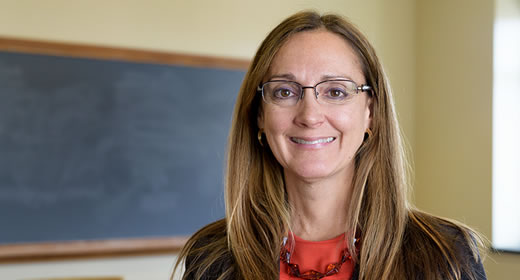
Five U-M faculty members have been elected to the American Academy of Arts and Sciences, a prestigious society that recognizes individuals who have made significant contributions in scholarly and professional fields.
The fellows—Elisabeth Gerber, Vincent Hutchings, Shinobu Kitayama, John O'Shea and Henry Wellman—are among 220 newly chosen scholars, scientists, artists and civic, corporate and philanthropic leaders.
"Election to the academy is both an honor for extraordinary accomplishment and a call to serve," said Academy President Leslie Berlowitz. "We look forward to drawing on the knowledge and expertise of these distinguished men and women to advance solutions to the pressing policy challenges of the day."
Among those elected this year are:
Gerber, professor of public policy, Gerald R. Ford School of Public Policy, conducts research focusing on intergovernmental cooperation in U.S. metro areas; local government capacity; political participation; elections; economic development; and urban politics and policy. She also teaches on state and local policy analysis, community and economic development, interest groups, program evaluation and research design.
Hutchings, professor of political science and research professor, Center for Political Studies, is an expert on public opinion, elections, voting behavior, and African American politics. "I am both surprised and extremely gratified to have received this honor," Hutchings said. "I did not see this coming, but I hope to live up to the exceptionally high standards associated with the American Academy of Arts and Sciences."
Kitayama, Robert B. Zajonc Professor of Psychology and director of the Culture and Cognition Program, has conducted research revolving around cultural differences and similarities in a variety of mental processes such as self, emotion and cognition. He has focused on comparing people from Asian countries such as Japan, the Philippines and China with Americans. "I am very honored to join the distinguished group of intellectuals across all disciplines over the United States. This means a lot to someone who did not quite speak English when he arrived in Ann Arbor as a new graduate student in 1982," Kitayama said.
O'Shea is a professor of anthropology and curator of Great Lakes Archaeology, Museum of Anthropology. His research focuses on the ways in which the archaeological study of funerary customs could be used to recover information on the social organization of past cultures. His topical interests include: tribal societies, prehistoric ecology and economy, spatial analysis, ethnohistory, Native North America and later European Prehistory. "I was thunderstruck by the unexpected news, and feel a great sense of humility and gratitude at being elected," he said.
Research done by Wellman, Harold W. Stevenson Collegiate Professor of Psychology, focuses on children's acquisition of foundational knowledge—early acquired understandings that shape and frame later cognitive developments—studied via naturalistic and laboratory studies with infants and young children. "I'm extremely pleased to become a member of the academy, which has such a distinguished history, impressive list of members, and important mission. It is an immense honor and one I hope I can live up to," he said.
The new class will be inducted at a ceremony Oct. 6, at the academy's headquarters in Cambridge, Mass.
Since its founding in 1780, the American Academy of Arts and Sciences has elected leading "thinkers and doers" from each generation, including George Washington and Benjamin Franklin in the 18th century, Daniel Webster and Ralph Waldo Emerson in the 19th, and Albert Einstein and Winston Churchill in the 20th. The current membership includes more than 250 Nobel laureates and more than 60 Pulitzer Prize winners.
An alphabetical list of the new members is located at: www.amacad.org/news/alphalist2012.pdf